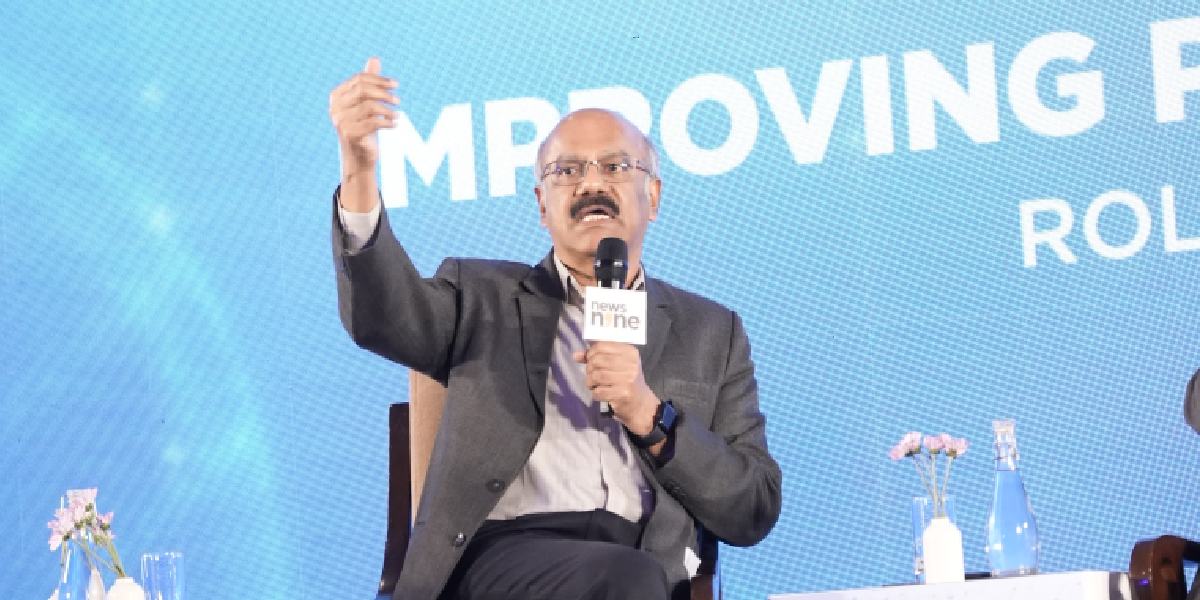Supreme Court established a National Task Force to provide recommendations on the modalities to be followed to ensure the safety of doctors.
Published Aug 20, 2024 | 2:30 PM ⚊ Updated Aug 20, 2024 | 3:19 PM

Dr D Nageshwar Reddy, Chairman of Hyderabad-based Asian Institute of Gastroenterology
After the incident of the rape and murder of a junior doctor at RG Kar Medical College and Hospital in Kolkata, the Supreme Court has established a National Task Force to provide recommendations on the modalities to be followed across India to ensure the safety of doctors in medical colleges and hospitals throughout the country.
The Task Force includes nine external members, along with ex-officio members from the government.
The external members are:
The ex-officio members of the National Task Force include:
The Supreme Court bench comprising Chief Justice of India (CJI) DY Chandrachud, Justice JB Pardiwala and Justice Manoj Misra directed the National Task Force to submit their interim report within three weeks and their final report within two months.
The CJI has instructed the Task Force to make recommendations concerning the safety, working conditions, and well-being of medical professionals, as highlighted in the order.
According to the order, the NTF is required to furnish an interim report in three weeks and a final report within two months. All states and Union Territories through their secretaries in health departments and the Union government through their secretary in the Ministry of Health must collate info from all hospitals run by the states and the Union government on the following aspects:
Terming the rape and murder of a medic at Kolkata’s RG Kar Medical College and Hospital as horrific, the Supreme Court strongly criticised the West Bengal government for the delay in filing an FIR in the matter.
Taking suo motu cognizance of the case, the top court stated that this incident raised systemic issues regarding the safety of doctors across India.
The bench took cognizance of the incident, and remarked, “If women are not able to go to work and their working conditions are not safe, we are denying them equality.”
The Supreme Court slammed the West Bengal government for the delay in filing an FIR in the rape-murder case and questioned the actions of the hospital authorities, asking, “What were they doing?”
“It appears the crime was detected in the early hours, but the medical college principal tried to pass it off as a suicide,” observed the bench.
The bench further criticised the Kolkata Police, asking how a mob of thousands managed to enter the RG Kar Medical College. It also questioned why the principal of RG Kar Hospital, whose conduct was under scrutiny, was immediately appointed to another college.
The court stated that the power of the West Bengal government should not be unleashed on protestors, emphasizing that this is a time of national catharsis.
The apex court expressed concern that most young doctors are working 36-hour shifts and stressed the need to develop a national protocol to ensure safe working conditions.
Solicitor General Tushar Mehta stated that West Bengal should not be in denial, pointing to a complete failure of law and order in the state. He remarked that a mob of 7,000 people could not have entered the hospital without the knowledge of the Kolkata Police.
The suo motu cognizance of the case, titled “In Re: Alleged Rape and Murder Incident of a Trainee Doctor in RG Kar Medical College and Hospital, Kolkata and Related Issues,” is significant in light of the fact that the Calcutta High Court has already transferred the probe into the case to the CBI.
The doctors’ strike over the rape and murder of the medic has now completed a week and is entering its second week, causing difficulties for patients.
The Supreme Court directed the CBI to file a status report on the investigation into the Kolkata case by August 22. It also directed the Kolkata Police to file a status report on the investigation into acts of vandalism at the hospital.
The court will hear the plea again on 22 August.
Additionally, the Supreme Court ordered CISF security cover for RG Kar Medical College and Hospital.
The protesting doctors want the CBI to catch the culprits and for the court to impose the maximum punishment on them. They also want an assurance from the government that “no such incidents occurs in the future”.
The alleged rape and murder of the junior doctor in a seminar hall of the state-run hospital has sparked nationwide protests.
The medic’s body with severe injury marks was found inside the seminar hall of the hospital’s chest department on August 9. A civic volunteer was arrested by the Kolkata Police in connection with the case the following day.
On 13 August, Calcutta High Court ordered the transfer of the probe from the Kolkata Police to the CBI, which started its investigation on 14 August.
The high court ordered the transfer of the probe to the CBI while hearing petitions, including one moved by the victim’s parents praying for a court-monitored probe.
(Edited by Muhammed Fazil)
(South First is now on WhatsApp and Telegram)
